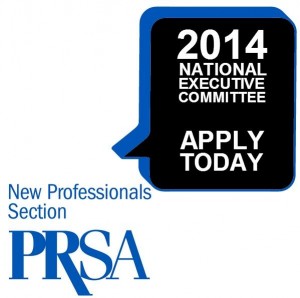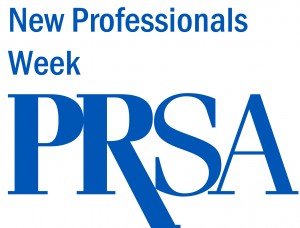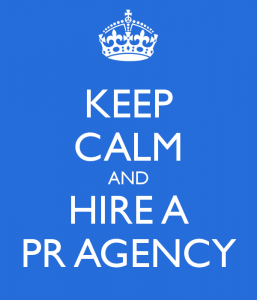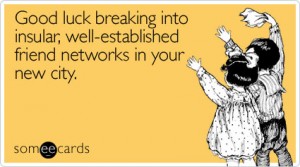 As new professionals, the opportunity to establish ourselves may require us to move out of our comfort zones and take jobs in new cities. It has happened to me twice already, and there are lessons I’ve picked up along the way to make future moves a little bit easier. The following tips will help you meet new people, settle into your new city and call your new surroundings home.
As new professionals, the opportunity to establish ourselves may require us to move out of our comfort zones and take jobs in new cities. It has happened to me twice already, and there are lessons I’ve picked up along the way to make future moves a little bit easier. The following tips will help you meet new people, settle into your new city and call your new surroundings home.
Join the local chapter of a professional organization
Joining local chapters of professional organizations like PRSA and IABC are great opportunities to network with new and seasoned professionals in the industry. Not only can you take advantage of learning experiences like workshops and guest speakers to develop professionally, but you can meet new friends to join you in exploring your new city.
Join a local interest group
We each have hobbies or interests outside of PR. Luckily, there’s a Meetup for that. Meetup is the world’s largest network of local groups. From cycling and running clubs, to astronomy and stamp-collecting groups, Meetup is likely to have a group that aligns with your particular brand of “weird.” If recreational sports leagues are your interest, you can also use Sportsvite to help you find the right sport and right league to give you an outlet for competitive sports. You can join leagues by yourself and be grouped with new people or sign up with a group.
Volunteer in the community
Volunteering not only gives you an opportunity to meet like-minded people, but it gives you an opportunity to build an emotional connection to your new home and become happier and healthier in the process. To find volunteer opportunities in your city, try VolunteerMatch, United We Serve or the HandsOn Network.
Find an alumni group in your area
If you live in or near a major metropolitan city, it’s likely that your alma mater has an alumni chapter near you. In my time working in Advancement at DePauw University, I saw firsthand the amount of effort universities put into keeping their alumni connected and happy, as their connectedness generally leads to increased donations. Events that universities plan for their alumni, especially young alumni with a fresh love for their university, include mixers, professional development panels and viewing parties for major sporting events. Reach out to your alumni office via phone, e-mail or even on social media, to learn about events happening near you.
Ask your co-workers
The greatest ready-made atmosphere to meet new people is the college campus. The next best atmosphere is the workplace. You’re going to see your co-workers and interact with them more than almost anyone else in your life, and there is a good chance that they’ve already made the adjustment that you’re trying to make. Ask them how they did it. Even more, ask them what their interests are. You may find that you have a friend with the same interests as you only a few desks away!
Each of these suggestions can help you adapt to a new city and make your time there more enjoyable. Alas, one final tip, and some of the best advice I’ve received in relation to making the adjustment from career coach Steve Langerud:
The ‘real world’ is what you make it. Don’t let other people define it for you. And remember, you have to do this by yourself, but you don’t have to do it alone. Ask for help. Engage your family, friends, and mentors in your life and struggles.
And have fun!!!
 Robert Martin is a corporate relations PR intern at Allstate in Detroit. He is a recent graduate of Bowling Green State University and is pursuing a master’s degree at Indiana State University. Martin is a member of IABC, PRSA National and the PRSA New Professionals Section.
Robert Martin is a corporate relations PR intern at Allstate in Detroit. He is a recent graduate of Bowling Green State University and is pursuing a master’s degree at Indiana State University. Martin is a member of IABC, PRSA National and the PRSA New Professionals Section.
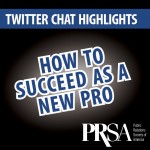 Thanks to everyone who participated in the November #NPPRSA Twitter chat to kick off PRSA New Professionals Week, discussing how to succeed in marketing and public relations as a new professional. We encourage everyone to get involved with PRSA New Professionals Week, November 11-15, and discover helpful resources, such as the free webinar, “What Your Boss Wants from You but Won’t Tell You” on November 11 at 3 p.m. ET.
Thanks to everyone who participated in the November #NPPRSA Twitter chat to kick off PRSA New Professionals Week, discussing how to succeed in marketing and public relations as a new professional. We encourage everyone to get involved with PRSA New Professionals Week, November 11-15, and discover helpful resources, such as the free webinar, “What Your Boss Wants from You but Won’t Tell You” on November 11 at 3 p.m. ET. Lauren Rosenbaum is the co-founder of Soversity, a public relations and digital marketing company. You can connect with her on Google+, LinkedIn or Twitter.
Lauren Rosenbaum is the co-founder of Soversity, a public relations and digital marketing company. You can connect with her on Google+, LinkedIn or Twitter.


